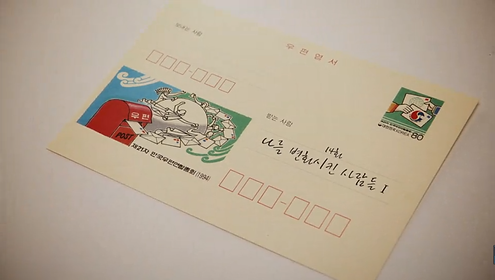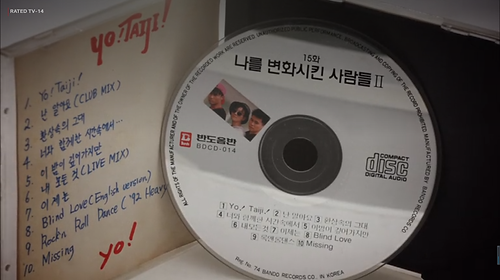

Episode 14 & 15:
By Wade Xiang
Episode 14: The people who changed me, Part 1
Time back to January 1996, “Haetae” mailed a letter telling what he encountered in the army. The cousin of “Sseuregi” predicted that “Seo Taeji” was leaving the stages and “Sseuregi” would break up with his girlfriend. Then, “Seo Taiji” did disappeared for a while. Meanwhile, “Chilbong” was going to Japan to play baseball. He spent the last night with friends at home and told “Najeong” his feelings. In the end, “Binggeure” decided to go back to medical school after seeing his father’s illness.
Episode 15: The people who changed me, Part 2
“Sseuregi” and “Najeong” were secretly dating at home behind her parents back. “Chilbong” gave “Sseuregi” the most meaning baseball of himself on the last night before going to Japan, and he hinted to “Sseuregi” that he would not give up on “Najeong”. After serious consideration, “Sseuregi” told Najeong’s parents about them. “Yunjin” felt so sad about Seo Taeji’s retirement, “Samcheonpo” was frustrated of Yunjin’s actions.
In this episode, we have seen how sad Yunjin is in response to Seo Taeji’s retirement, in which reflects the increase of importance to popular music and its influence on the youth. In 1990s, the popular music singers in many fields started to become idols, including rock, heavy metal, and rap music. Among those singers, the most outstanding one is the iconic musician Seo Taeji, which can be exemplified by the term ‘Seo Taeji syndrome’ (Um 2013, 53). He formed a music group with 2 other members in 1991. They released an album every year from 1992 to 1994, with styles mainly based on rock and rap. Due to how different and new the style is compared with the mainstream music at that time, young people goes crazy about it. And the youth not only like Seo Taeji’s music, but also copies their fashion styles. This explains why young people dressing like Seo Taeji can be seen everywhere on the streets. Like a legend, Seo Taeji began to significantly influence the youth in Korea with music.

However, this effect always has two sides. As an entertainment, music is a way to ease tension and boredom. The music embodies another role on Yunjin which was dealing with loneliness and controlling her mood. According to Reply 1994, Seo Taeji’s music gave Yunjin power and hope which helped her develop into a more powerful person compared to the weak and pessimistic girl in the past. Due to the disability of Yunjin’s mother, Yunjin felt humiliated at school. She was afraid of socializing, so she locked herself in the room. It causes her personality to become more introverted. Coincidentally, Yunjin came across to Seo Taeji's music and changes her antisocial situation. It gave her company when she was alone and gradually became a psychological dependency for her (Ep 15, 61:04-64:30).

In the lecture of education, we know how much the Korean students are under academic pressure. Their parents expect a lot from them. Causing most of their spare time being used for tutoring, hoping to achieve good grades and enter a good college. The fangirl activities will distract students and result in them to spend more time on the stars. The distraction might even cause them to skip class. This not only reduces the time spent on studying, but also decreases their family’s financial ability. Also, students get exposed to make-up, fashion, and hairstyle earlier than they should. This will result in them paying more attention to their makeup, hairstyle, and fashion. Eventually, this will take up a lot of their time which might influence their academic behaviour as well.
In general, not only has Korean music changed dramatically since the 1900s, but fans, especially young people, were influenced significantly.
Word count: 450
With these in mind, I would like to ask the following questions:
-
There are crazy fans out there like Yunjin who stalks their idol and are willing to spend infinite money on their idol’s products. What is your opinion on this kind of act?
-
What is your opinion regarding the effects of music to youths? Does the negative effects outweigh the positive effects?
Bibliography:
Um, Hae-Kyung. "The poetics of resistance and the politics of crossing borders: Korean hip-hop and ‘cultural reterritorialisation’1." Popular Music 32, no. 1 (2013): 51-64.